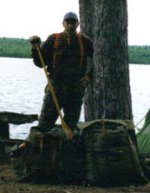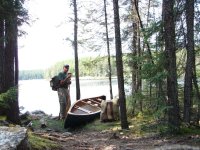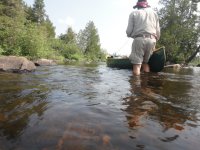For the BSA guide trek leader guide training program I help to instruct, it is held in a very familiar Adirondack canoe wilderness area that ai have been to at leat 40 times over the years. Not much changes since motors were bannned there a numbe of years ago, so I do little prep before I go, whether it is for the BSA cours or if I go solo on my own, which I often do. One of the instructors has been going there as long as I have, and he is very much a historian on the area, and provides a talk on what used to be, and how the area was developed (or not) into what it is today. Another instructor, based on prior knowledge and map study, will give an expectation briefing to the class, based to a large extent on LNT and what is typical of the area. Each student, at thet beginning of their term as "leader of the day" is expected to give a similar briefing, as if they are meeting their scouting youth group for the first time.
To the other extreme, when I first prepared for the Yukon River races, I spent months studying the few availble books and old charts that I could find. I also studied the then available previous race routes from the then web page published GPS of the fastest finishers, and created my own best guess best routes (and alternates) from my own map study, mainly from Google Earth, since the topographic maps are all hopelessly out of date and inaccurate. For subsequent Yukon races i did similar studies, and updated my planned route based on my own previous results and memory of each critcal section.



